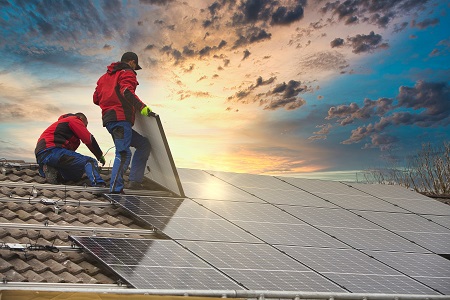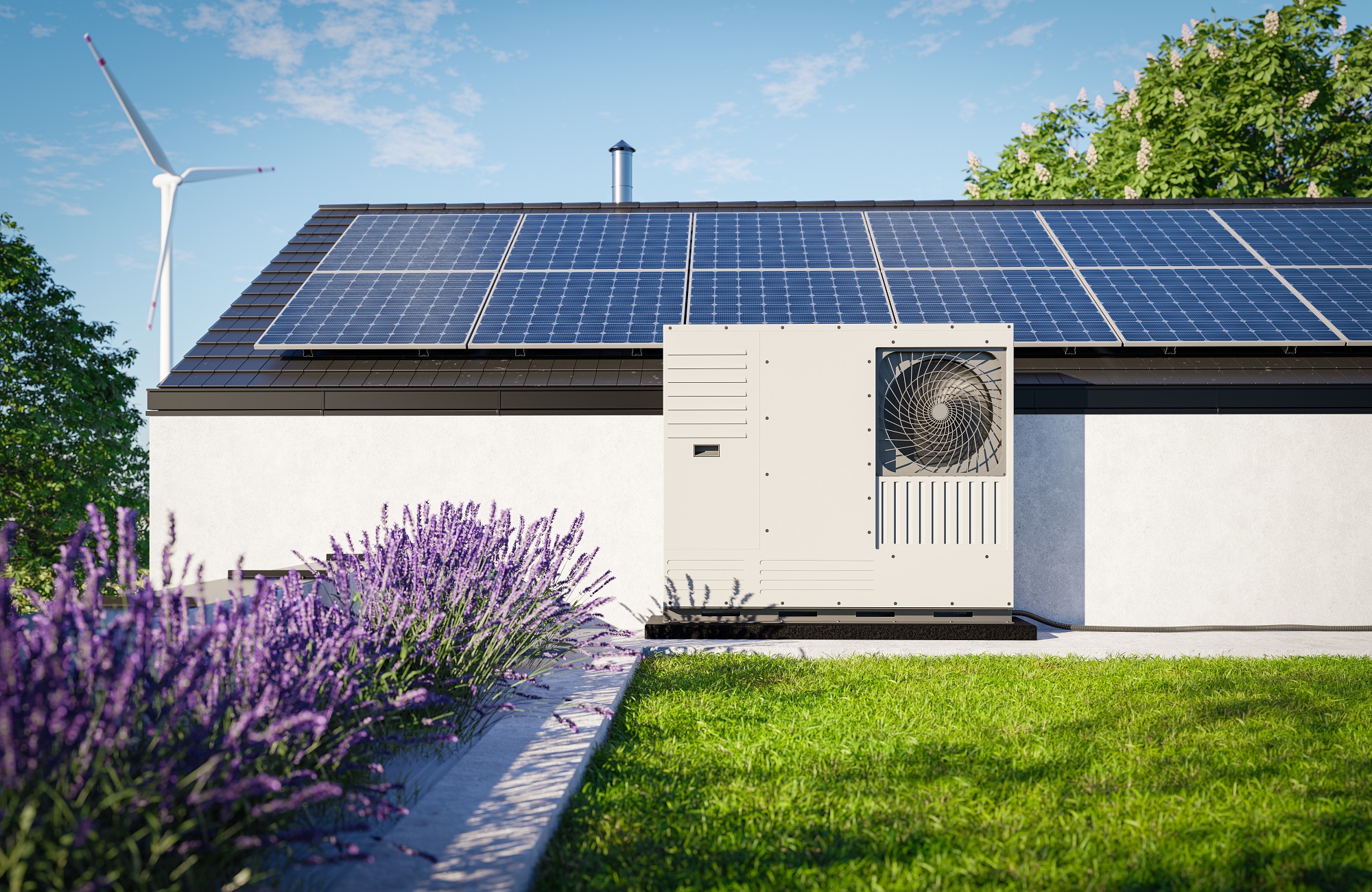You’re considering going green with solar panel installation – that’s great! But don’t rush in. There’s a lot you’ve got to ponder before making the big leap.
From assessing your home’s or business’s suitability and understanding costs to navigating permits and understanding your local climate, you’ve got your work cut out.
But don’t worry; we’re here to guide you through what you need to think about before you start harnessing that sunshine.
Think About Whether Your Home or Business Is Suitable for Solar Panels
Before jumping into the installation, you’ll need to consider whether your home or business, taking into account aspects such as roof direction and shadow presence, is suitable for solar panels. It’s crucial that your roof faces in a direction that captures ample sunlight. South-facing is usually optimal in the Northern Hemisphere. Similarly, you’ll need a roof with minimal shading from trees or other structures.
Next, consider the age and condition of your roof. If it’s nearing the end of its lifespan, you might want to replace it before adding solar panels.
Local regulations and homeowner association rules can impact your ability to install solar panels. So, research thoroughly and make an informed, eco-friendly decision.
In addition to the factors mentioned above, it is also important to consider the available space on your roof for solar panel installation. You will need enough area to accommodate the desired number of panels and ensure they are properly spaced for optimal sunlight exposure. It is also worth considering any future plans for roof renovations or additions, as this may affect the placement and efficiency of the solar panels.
Furthermore, it is essential to assess your energy needs and goals before installing solar panels. Determine how much electricity you consume on a daily or monthly basis and whether solar panels can meet those requirements. Additionally, consider your long-term energy goals, such as reducing your carbon footprint or achieving clean energy independence. This will help you determine the size and capacity of the solar panel system you need.
Understanding the Costs Involved in Solar Panel Installation
You’ve got to understand that the upfront costs involved in solar panel installation aren’t just about the panels themselves but also include other expenses like installation labor, wiring, inverter, and potentially a new roof. There’s a lot more to it than just buying the panels and sticking them on your roof.
Here’s a quick breakdown of what you might need to factor into your budget for solar panels:
- Labor costs: Expert installation isn’t cheap, but it’s crucial for safety and efficiency.
- Wiring and inverter costs: These connect your panels to your home or business and convert the sun’s energy into usable electricity.
- Potential roof replacement: If your roof isn’t in good condition, you’ll need to fix that first.
- Ongoing maintenance: Panels are sturdy, but they still need regular check-ups.
Evaluating Different Types of Solar Panels
In your evaluation of different types of solar panels, it’s necessary to consider factors such as efficiency, cost, and lifespan. Monocrystalline panels, for instance, are highly efficient but come with a steeper price tag. Polycrystalline panels are more affordable, but they’re not as efficient. Then there’s thin-film solar panels; they’re cost-effective and flexible but have a shorter lifespan.
When deciding, you’ve got to weigh these factors against your needs and budget. If you’re in it for the long haul, monocrystalline might be best. But if you’re watching your wallet, polycrystalline or thin film could be the way to go.
It’s about making an informed, sustainable energy source choice that aligns with your green energy goals.
The Role of Local Permits and Regulations
While you’re contemplating the type of solar panels to install, it’s equally crucial to familiarize yourself with local permits and regulations, as they can significantly impact your project. Navigating through the bureaucratic maze may seem daunting, but it’s necessary to ensure your project abides by local codes and regulations.
Here’s what you’ll need to consider:
- Building Permits: You’ll likely need a permit to install your solar panels. Check with your local building department.
- Fire Safety Regulations: These rules dictate the design and installation of your solar panels, ensuring they’re not a fire hazard.
- Historic Preservation Rules: If you’re living or have your commercial property in a historic district, there may be special regulations about altering the appearance of your home or business.
- HOA Rules: Homeowners associations can have their own rules about solar panel installations.
Understanding these rules will ensure your solar installation is smooth, legal, and environmentally sound.
Considering the Impact of Climate and Weather
Before you decide on solar panels, you’ll need to consider two vital factors: your area’s general climate and specific weather conditions.
You see, solar panels thrive in sunny climates, but they’re not exclusive to them. Even in overcast conditions, they can still generate power, albeit less effectively. That’s a common misconception you should debunk right away.
However, specific weather conditions like heavy snowfall, hail, or high winds can potentially damage your solar panels or affect their efficiency. You’ll need to factor in these elements when considering installation costs and maintenance. Your choice of a solar solution should be robust enough to withstand your local weather conditions.
How to Get Started with the Process of Going Solar
You’ve considered the climate and weather factors, and now you’re ready to dive into the installation process of going solar, but you might wonder where to start. Transitioning to a solar energy system is a significant step towards a sustainable future, but it’s essential to approach it mindfully.
Here are some things to ponder:
- Evaluate your energy needs: Review your energy bills to understand your consumption patterns better.
- Choose a solar panel type: Monocrystalline, polycrystalline, or thin-film; each has its pros and cons.
- Select a solar expert installer: Look for a certified, experienced installer with good reviews.
- Understand the cost of solar: Analyze the initial investment, potential savings, and return on investment.
How Much Power You Can Generate from Solar Panels and How Much Money You Can Save
In this section, we’ll discuss the amount of energy usage you can generate with a solar panel system and how that translates into savings on your utility bills. Solar panels harness the sun’s energy and convert it to electricity. The amount you’ll generate depends on factors like your location, roof angle, and panel efficiency. Generally, a standard solar panel can generate around 1.5 kWh per day per panel or about 10-20 kWh per day for an entire solar panel system.
You’ll see significant savings on your utility bills as you’re using less grid electricity. This can translate to thousands of dollars saved annually. Plus, you’re reducing your carbon footprint by using a renewable energy source. It’s a win-win.
However, remember, initial setup costs can be high. But don’t worry; with government solar incentives and long-term savings, you’ll recover your solar investment. Solar power isn’t just good for the planet; it’s good for your pocket, too.
Pro-Stat Solar Group Installs Residential and Commercial Solar Panels

You’ll find that the Pro-Stat Solar Group installs both residential and commercial solar panels, providing a green solution for your energy needs. With a decade of experience, our solar panel installers are dedicated to helping you harness the power of the sun to reduce your carbon footprint and energy bills.
As you consider solar energy, think about:
- Your property’s sun exposure: More sun means more usable energy generation.
- The size of your roof or property: This impacts the number of panels you can install.
- Your current energy consumption: This helps determine how much power you need to generate.
- Potential savings: Solar power can significantly reduce your electricity bills.
Contact us for outstanding customer service.
Quality services we provide:
- Solar System Installation
- Residential Installation
- Commercial Installation
Visit our About Us page for more information about our solar panel company. We also offer various financing options as well.

